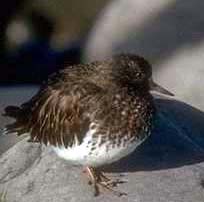Home | Information | Schedule | Links | Communication

Session Three B

Global Environmental Problems & Solutions
ACTIVITIES
| Class Overview
|
This class involves a discussion of the concept of "ecological footprints" as they relate to global environmental problems. This class is in prparation for the next writing assignment which is due in Week 5. |
Readings |
Web Reading: Go to Agenda 21 and read any section beginning with Chapter 3: Combating Poverty. Then go to the web links portion of this web site and find web sites that illustrate the problems identified in the chapter of your choice. Ecological Footprints of Nations By: Mathis Wackernagel, Larry Onisto, Alejandro Callejas Linares, Ina Susana López Falfán, Jesus Méndez García, Ana Isabel Suárez Guerrero, Ma. Guadalupe Suárez Guerrero With comments and contributions by Gianfranco Bologna, Hazel Henderson, Manfred Max-Neef, Norman Myers, William E. Rees and Ernst Ulrich von Weizsäcker Calculate Your Ecological Footprint Revisiting Carrying Capacity: Area-Based Indicators of Sustainability by William E. Rees, The University of British Columbia |
 Writing Assignment |
Writing # 2 due
Session Four.
Click the icon for information on the assignment. |
 |
Field Trip # 2 - Sense of place. Click here for information on meeting the course objectives for this field trip. Submit your Field trip report to Prof. Wimberley by attaching it to the Lesson Board upon completion of the field trip. This field trip must be completed and posted to the Lesson board by the end of Session 4. |
|
Lesson Board:
|
Discussion Questions:
Discussion questions due
at end of this class session (Saturday at 5 pm.)
1. What do you think is the most important crisis? How do they interlock? How, then, can they be solved? 2. Do you see signs of hope and success? Explain. 3. How do these readings make you feel? 4. What "common endeavors" can we begin? What can the United States do? What can you do? 5. Please explain what the concept of an "ecological footprint" means. 6. What is meant by the term "carrying capacity" 7. What are the ramifications in Florida for the expansion of our human "ecological footprint." 8. What limits our "carrying capacity" in Florida? 9. Calculate your ecological footprint and report it to the instructor. Post your responses on the Lesson Board. |
 Journal Writing |
Continue to journal regularly. You know, since poverty is a part of today's class session, you might want to drive by an are that is impoverished, and make some notes on what you see and what you think contributes to the neighborhood's condition. Remember that the journal must be in Word Format, must be attached to the Lesson board and in the interest of being opened and read, must not include pictures. |
| Please post to the web what topical area you will be conducting your annotated bibliography on. You will be asked to provide an update on your project on session 8. |
Home | Information | Schedule | Links | Communication
Sessions: 1 2 3a 3b 4 5 6 7 8 9 10
This page last updated 07/12/09